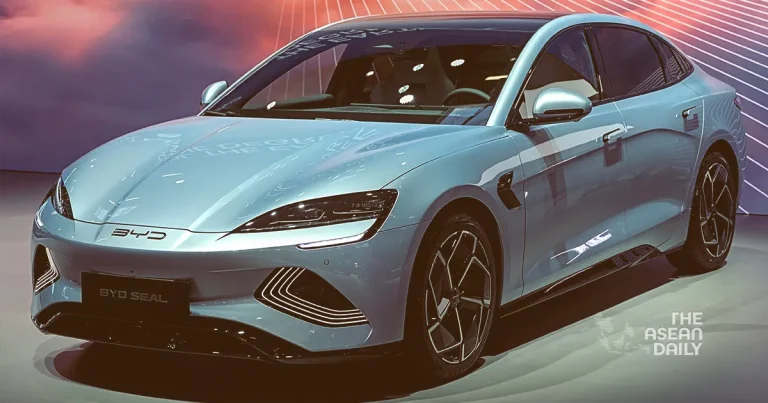4-7-2024 (BANGKOK) Chinese automotive giant BYD has marked a significant milestone in its global expansion strategy with the opening of its first electric vehicle (EV) manufacturing facility in Southeast Asia. The state-of-the-art plant, located in Thailand’s eastern Rayong province, was officially unveiled on Thursday, signalling BYD’s ambitious plans to dominate the region’s rapidly growing EV market.
Speaking at the opening ceremony, BYD CEO and President Wang Chuanfu emphasised Thailand’s clear vision for electric vehicles and its emergence as a new hub for automotive manufacturing. “We are committed to bringing cutting-edge technology from China to Thailand,” Wang stated, underlining the company’s intention to transfer knowledge and expertise to its new production base.
The establishment of this facility is part of a broader trend of Chinese EV manufacturers investing heavily in Thailand, with total investments surpassing US$1.44 billion. This influx of capital has been encouraged by the Thai government’s generous subsidies and tax incentives, designed to attract EV production to the country.
Thailand, long recognised as a regional automotive assembly and export hub, has set an ambitious target to convert 30% of its annual vehicle production to EVs by 2030. This goal aligns with the country’s vision to transition from its traditional role as a stronghold for Japanese automakers to a key player in the electric vehicle revolution.
Narit Therdsteerasukdi, Secretary-General of Thailand’s Board of Investment, highlighted BYD’s strategic use of Thailand as a production hub for export to ASEAN nations and beyond. The US$490 million facility boasts an impressive annual production capacity of 150,000 vehicles, including plug-in hybrids, and is expected to create employment for approximately 10,000 workers.
During a tour of the sprawling factory, visitors observed the assembly line in action, with partially constructed BYD Dolphin models moving through various stages of production. Liu Xueliang, BYD’s Asia Pacific General Manager, confirmed that the plant would also handle the assembly of batteries and other crucial components.
BYD’s decision to establish a manufacturing presence in Thailand comes as no surprise, given the country’s status as the company’s largest overseas market. In the first quarter of this year, BYD commanded a 46% share of Thailand’s EV segment, solidifying its position as the third-largest player in the passenger car market.
However, BYD’s rapid expansion and aggressive market strategies have not been without controversy. The company’s dealers in Thailand are currently under scrutiny following complaints about aggressive discounting practices, which have left some buyers feeling short-changed.
As BYD continues its global push, having briefly overtaken Tesla as the world’s top EV seller in late 2023, the company remains bullish about its expansion plans. Despite facing intense competition and a price war in its home market of China, BYD reported a record annual profit of 30 billion yuan (US$4.1 billion) last year.




